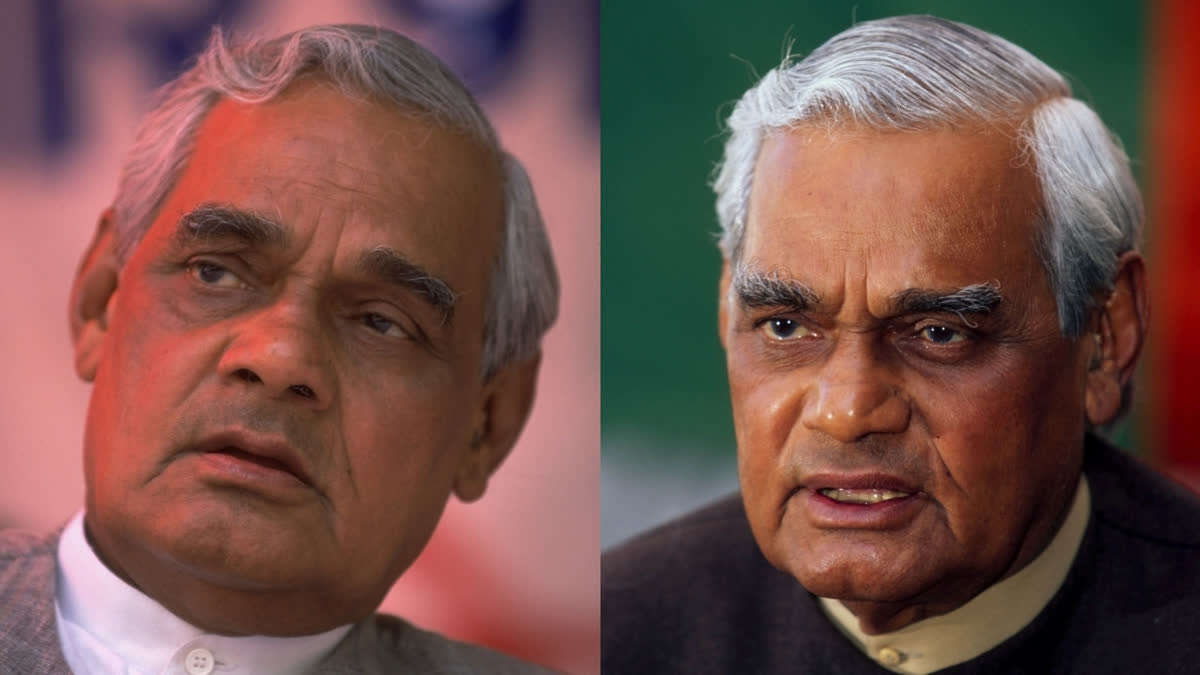Hyderabad:Good Governance Day, observed on December 25, commemorates the birth anniversary of former Prime Minister Atal Bihari Vajpayee. The day is also known as Sushasan Divas in Hindi. This annual observance, marking the 99th birth anniversary of Atal Bihari Vajpayee this year, serves to acknowledge Vajpayee's contributions and create awareness of governmental accountability among the public.
History of Good Governance Day-On December 23, 2014, former Prime Minister Atal Bihari Vajpayee and Pandit Madan Mohan Malaviya were awarded the highest civilian honour in the country, the Bharat Ratna. Following the declaration, Prime Minister Narendra Modi declared December 25 as Good Governance Day, as the day coincides with Vajpayee's birth date.
Objective of the Day-The purpose of Good Governance Day is to increase public access to various government programmes and services via good governance. It was established with the slogan "Good Governance through e-Governance."
Who was Atal Bihari Vajpayee?Vajpayee, born on December 25, 1924, in a Brahmin family, was a pivotal figure in Indian politics. Known as the "man of the masses," he actively participated in the Quit India Movement, which led him to a 23-day imprisonment. His political journey saw remarkable achievements, such as winning six Lok Sabha constituencies from four states, serving as an MP for 47 years, and becoming India's first Prime Minister from the Bharatiya Janata Party.
Vajpayee's achievement-Vajpayee's leadership left an indelible mark on India's political landscape. He served as Prime Minister for three terms, including during the successful nuclear test at Pokhran in 1998. Notably, he was the first Indian politician to address the United Nations General Assembly in Hindi. His retirement from politics in 2005 marked the end of an era, and he was posthumously awarded the Bharat Ratna in December 2014.
Vajpayee: The Allrounder- Apart from his political endeavours, Vajpayee was a multifaceted personality. He had a keen interest in poetry, releasing albums featuring his poems with Jagjit Singh. Despite suffering a stroke in 2009, he remained an influential figure in Indian politics until his retirement. Vajpayee's unique attributes, including his brief stint in journalism, proficiency in Marathi, and love for non-vegetarian cuisine, added layers to his persona.
Vajpayee's contribution-Vajpayee's contributions to the nation were substantial. From India's first nuclear test in 1974 to spearheading the telecom sector's liberalisation, launching Chandrayaan 1, and initiating the Sarva Shiksha Abhiyan, his governance legacy remains influential. His leadership during the Kargil War and the Agra summit, along with pivotal decisions like privatization and introducing the Fiscal Responsibility Act, demonstrated his commitment to the nation's progress.
District Good Governance Index-In the broader context of good governance in India, recent initiatives include the District Good Governance Index, launched by Union Home Minister Amit Shah for Jammu & Kashmir. The Good Governance Index (GGI) and the National e-Governance Plan aim to assess and enhance governance across various sectors. The Right to Information Act, enacted in 2005, plays a crucial role in ensuring transparency.
